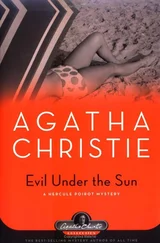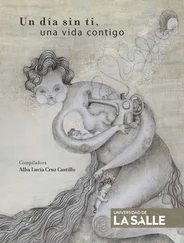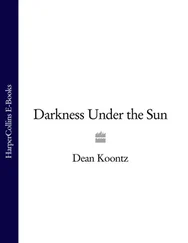This first primitive bank also changed local custom. A Keelan Clan registrar recorded all important records and transactions in the Abersford area. The man in this role, Willym Forten, owned a clothing shop, with registrar duties carried out in a side room. With the establishment of the bank, overlapping activities and the need to transfer all important bank transactions to the clan registration system led to the registrar spending half of each day at the bank, at a dedicated part of the main room. Local citizens, merchants, and craftsmen arranged loans and could deposit their funds in the bank once convinced it was secure.
The building itself was literally a fortress. It would have taken cannons of significant size to breach the outer walls, not to mention the vault sealed with locking mechanisms built by Abersford metalworkers. Records of all transactions were kept in ledgers, and a duplicate set of ledgers put into the abbey’s library storage area. Relevant records were transferred to clan journals and copies sent to the main registrar in the clan capitol of Caernford.
There were no dedicated guards at the bank, but Cadwulf’s assistants were men with varying handicaps from accidents or violent encounters with raiders, clan rivalries, or criminal activity, and all worked armed and were pleased to have employment to support their families. Moreover, the bank was visible from the office of the Abersford magistrate, Denes Vegga, a combination sheriff and local militia leader.
Cadwulf Beynom, Financial Manager and Mathematician
Cadwulf’s assumption of accounting duties for Yozef’s enterprises and his operating the Bank of Abersford initially perplexed his theophist and medicant parents. They had assumed, practically from the baby’s birth, that their precocious child would enter one of the three orders at the abbey. The only decision left for him was which one: theophist, medicant, or scholastic. In Cadwulf’s mind, he had long ago dismissed following his father’s path. Not that he didn’t believe in God, but the theophist life path wasn’t for him. As for the medicant option, while he recognized helping others was a noble calling, and he had enormous respect for his mother, his dealing daily with others’ body fluids, cutting off limbs, and telling families about loved-ones passing on wasn’t going to happen.
That left scholastics. Fortunately for Cadwulf, learning, books, and even lessons were not a chore, but something to look forward to. As an adolescent, he raced through all of the basic studies the abbey’s teachers could provide, including extra lessons and projects designed especially for him. Thus, at eighteen Anyar years old (sixteen Earth years), he possessed the broadest knowledge of anyone at the abbey, but no depth of knowledge in any one area, with one exception. He found numbers endlessly interesting. His parents either ignored or misunderstood this fascination with numbers, even the first evidence when a happy four-year-old Cadwulf told them of counting 627 butterflies that day. Sistian and Diera each had the same two reactions—pride that their four-year-old son could count to 627 and confusion over why anyone would bother counting butterflies.
By age thirteen, Cadwulf was led by his love of numbers to do most of the abbey’s accounting. For him, counting up columns of numbers was almost a meditation. The solution to Yozef’s problem of increasing in- and outflow of funds for workers and projects was a perfect fit for Cadwulf’s vocation need. Within a month, Cadwulf’s life without focus had changed forever. By then, he was bank manager, was the accountant for Yozef’s sundry enterprises, and was helping revolutionize Anyarian mathematics.
The coming of Yozef was a gift from God to Cadwulf. The mathematics on Anyar overlapped most of Earth’s classical geometry and elementary algebra and the beginnings of trigonometry and determinants. Cadwulf had absorbed all of the mathematics the abbey’s teachers understood and moved beyond them to texts on his own. To go further, he would have to move to another province to one of the two abbeys with mathematics scholastics. That was until Yozef realized mathematics was an obscure-enough field of study on Caedellium that he could risk transferring what he knew.
Although not grounded in theoretical mathematics, Yozef was able to give Cadwulf leads to establish or advance analytic geometry, linear algebra, the rudiments of probability, combinatorics, game theory, infinite series, and both differential and integral calculus. Cadwulf was in ecstasy. Whole new fields of mathematics opened up to him. Granted, while Yozef’s knowledge of those fields was limited to the equivalent of the first college course in each, they were either novel to Caedellium and Anyar or a logical coalescence of existing mathematics. What helped was that once again, Yozef found himself able to visualize entire pages of texts from courses he had taken. The explanations, the examples, and the proofs were more than enough to keep Cadwulf busy.
When the day came that Cadwulf asked Yozef to confirm a new extension he had developed of a combinatorics theorem, it convinced Yozef he would make a difference to Anyar.
While pretending to listen to Cadwulf’s explanation, Yozef mused, You know, while the ether helps people, it’s the mathematics that will have the biggest long-term impact. Cadwulf is already writing to other Scholastics around Caedellium. Within months, it’ll start to be all over the island. And even if the worst happens to the Caedelli from these Narthani, it’s likely the new mathematics knowledge will spread to the rest of Anyar. And I did this, no matter what else happens .
Chapter 19: A House of His Own
“It’s past time you find a place of your own, instead of living in that small room in the abbey complex,” chided Cadwulf one day, soon after beginning to organize Yozef’s finances.
“I know,” said Yozef. “I’ve thought about it, but with everything else to keep me so busy . . .” What he didn’t say was that the room served as a sanctuary, a place where he could close the door and feel a degree of peace, as if for those moments he could put all of the months since boarding the United flight out of mind. Cadwulf was right. He needed to move on.
“With all the coin you’re accumulating, I assume you’ll want a house, probably small to begin with.”
“Yes,” said Yozef, “but not too far from either the abbey or Abersford, since I spend so much time in both places. I think I’d like it to be not too close to other houses and with a view of the ocean, if possible.”
“Why would you want to see the ocean?”
“I find it calming. I see myself sitting on a porch and just relaxing.”
“Hmmm,” murmured Cadwulf. “I guess everyone’s different. When I want to think about something or relax, I like to lie at night and gaze at the stars. Anyway, let me ask around to see what property might be available. Inside Abersford is ruled out, if you don’t want to be near others.”
In the next three days, Cadwulf identified four available houses and cottages. The third possibility caught Yozef’s fancy. The house itself was nothing remarkable—a medium-sized cottage with a thatch roof and three fair-sized rooms with high ceilings. It sat on a small knoll about a mile west of both the village and the abbey and overlooked the ocean a half-mile away. A much smaller, single-roomed hut lay about forty yards away, behind a screen of trees, and the land contained abandoned and overgrown garden plots and several Anyar and Earth fruit trees. There was no information on the original builders and inhabitants or how long it had been unoccupied. Cadwulf suspected it had been empty some time, since the surrounding land was poor for farming—too much slope and too many rocks—although stone fences, rusting tools, and piles of rocks showed someone had made the attempt. There was also a dilapidated barn, but, unlike the two housing structures, the barn was well along the road to kindling.
Читать дальше












